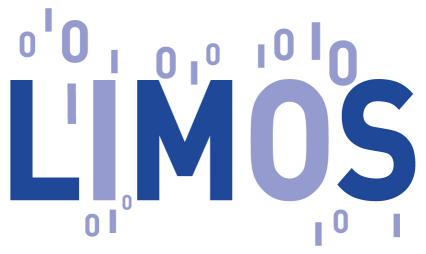|
Date : 13 juillet 2022 10:00 - Type : Thesis - Zhengze ZHU - Salle du conseil
Hierarchical and Hybrid Decisional Control Architecture for Cooperative Navigation of Autonomous Vehicles in Complex Environments/Situations |
Cooperative navigation (CN) is a frequently used technique for ensuring the effective navigation of Intelligent Vehicles (IVs). In this background, efforts to establish a Connected Autonomous Vehicles (CAVs)-based traffic control system via vehicular communications technology have accelerated in recent decades. Safe and flexible multi-vehicle coordination (MVC) technology, in particular, has attracted considerable interest for its ability to deal with complicated environments/situations. Additionally, a feasible hierarchical architecture is critical for cooperative driving with numerous control goals in autonomous vehicles. Thus, the objective of this PhD thesis is to develop reliable MVC technology (e.g., trajectory planning and decision-making for motion planning) and CAVs-based frameworks for use in complex environments/situations. To achieve this goal, this thesis first presented a safe and flexible cooperative navigation technique with risk assessment for cramped local locations (defined as single intersection/roundabout). The -constraint Probability Collectives (PC) algorithm, which is based on the distributed Collective Intelligence (CI) theory, is developed to offer proper solutions for cooperative driving. More precisely, IVs can compute their optimal/sub-optimal and risk-sensitive (i.e., invasive or conservative) cooperative navigation strategies base on the decentralized -PC framework, enabling collision-free trajectories in the decision-making level. Next, it is suggested a global supervisor responsible for scheduling and improving vehicle navigation routes while also proposing well-suited trade-offs between speed and risk to achieve the targeted tasks. To better deal with the inhere complexity of CN system in a transportation network (e.g., intersection/roundabout and the expended intersection network), the second part of the thesis addresses the potentialities of adopting Multi-layer Hybrid Control Policy and Motion Planning (MHCP-MP) framework. Given the fluctuating road traffic, it was recommended that local supervisors be in control of the urban network's intersections (tricky regions). Specifically, the local supervisor works as a mediator between the global traffic management level and the CAVs decision level, sending instructions to regulate vehicles' trajectories and improve the mobility and safety of the overall transportation system. To accomplish the aim, a Macroscopic Fundamental Diagram (MFD)-based approach in the proposed MHCP-MP framework is designed with concise urban traffic data (e.g., vehicle position, speed, etc.). Further, the Micro-Macro Flow Control (MiMaFC) strategy is proposed to demonstrate the advantages of establishing a link between the suggested local collective optimization framework and macro traffic model for improving the fluidity of the overall transportation system. Following that, the suggested intersection navigation protocols in a deep relationship with our established intelligent intersection management system are designed to permit an uncertain traffic flow. Finally, the proposed CN management architecture in this thesis has been proven in a dedicated transportation network through intensive simulation.
Keywords: Cooperative navigation, Multi-vehicle coordination, Hierarchical architecture, Risk assessment, Probability collectives, Traffic management.
Keywords: Cooperative navigation, Multi-vehicle coordination, Hierarchical architecture, Risk assessment, Probability collectives, Traffic management.
Jury
The defense will be conducted under the jury committee composed of:
| Olivier SIMONIN | Rapporteur | Professeur à l’INSA de Lyon |
| Jakob PUCHINGER | Rapporteur | Professeur à Université Paris Saclay |
| Haiying ZHOU | Examinateur | Professeur, Technology Center of Dongfeng Motor Group Co., LTD |
| Reine TALJ KFOURY | Examinatrice | Chargée de recherche CNRS, HDR à Heudiasyc/UTC |
| Leïla KLOUL | Examinatrice | Maître de Conférences, HDR à UVSQ |
| Youcef MEZOUAR | Examinateur | Professeur, SIGMA Clermont Auvergne |
| Lounis ADOUANE | Directeur de thèse | Professeur, Université de Technologie de Compiègne |
| Alain QUILLIOT | Directeur de thèse | Professeur, Université Clermont Auvergne |
